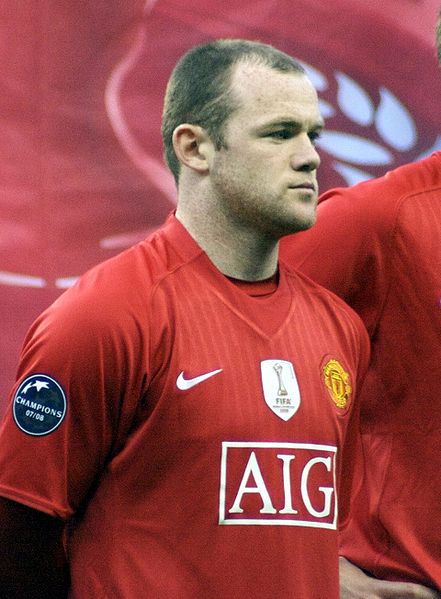
Picture Courtesy: Gordon Flood
Wayne Rooney is probably ignoring the media today. Newspapers cannot resist connecting his ability to “score” last night with his alleged “scoring” with prostitutes, for instance. The chances are that wherever you read anything about our Wayne today, you’ll also find words that connect him with call girls. Writers are making connections between the two subjects simply by using the right words for us to make the link. Even if they don’t directly accuse him of consorting with prostitutes, the words used are suggestive enough for us to create the connection in our own minds.
Technically, this is known as “semantic clustering” – putting words together all on the same subject. So, if he were to read the newspapers today, Wayne would find words like “call girl”, “hooker”, “bed”, “score”, “vice”, “slept” and so on – all words that are linked to the subject of prostitution. And the process that your mind goes through in connecting all these words together into one subject is much the same as the process Google goes through in assessing which websites to rank for particular topics.
The notion of “search engine optimization” is founded on keywords – single words or short phrases which people type in to a Google search box. The idea is that you focus your website on these keywords and hey presto you are at the top of the results. Nice theory, if only it were that simple. However, some 18 months ago, Google enhanced its search methodology with semantic clustering technology. Indeed, back in 2003, Google acquired a semantics technology business in a bid to improve its advertising responsiveness. In other words – as the best SEO people will actually tell you – the keywords people type in play only a part in the search engine results.
What Google is looking for is the collection of words on a page, the semantic clustering. If, like Wayne Rooney’s coverage today, those words are all on a similar topic, then the chances are the whole page is about that subject – and it gets a higher ranking.
You can test this for yourself by looking at the search results for any given keyword. Type a word or phrase into Google and open up the first result and the tenth one. For instance, if you search for “website promotion” the first result is “Free Website Promotion Tutorial“. The tenth result is “UK Banners”. Now take a look at the words on the pages. The first result includes lots of semantically connected words, such as “traffic”, “ranking”, “attract” and “advertising”. The tenth result is using the words “website promotion” several times – looking like someone has said that the “trick” to ranking success is using “the keyword” several times. Looks like it hasn’t worked too well then.
The “trick” to success is to realise that Google checks the keyword against the whole page; it is looking to see, using semantic clustering, to see if the entire page is relevant to the subject of the keyword. You can check this on your own site using your analytics software; you will find that several keyword searches have brought people to your pages via Google, yet you don’t have those actual keywords on your page. The reason? The semantic cluster of the other words on that page suggest to Google that the page is about the topic which the searcher typed in.
So how can you use this all to your benefit? Research tells us that when you are an expert on your topic, or when you are passionate about your subject, you will use semantic clusters naturally. People who are Wayne Rooney fans will talk about him using all sorts of words which are connected to him – “Manchester”, “goals”, “Everton”, “striker”, “petulant”, “Coleen”, “player of the year” and so on. In other words, when you talk about something you enjoy, which you are passionate about, your brain automatically produces the semantic cluster to show you know what you are talking about.
When putting together your website content the best thing to do, therefore, is stop focusing on the keywords. Ignore all that garbage about the number of times you must mention a keyword to get Google to notice you, or the positions on the page to put the key phrases. That takes your mind off the subject in hand, which is writing about your passion or your expertise….naturally. If you forget “the rules” and simply write about your topic, guess what? You use a whole range of words and phrases which are semantically connected. And in turn that makes Google realise your web page is about the topic and you get ranked more highly as a result.
Whereas, if you write according to rules, your semantic clustering goes down and your website ranking potential is therefore also reduced. The only time you can truly succeed with keyword optimization rules is when the competition for those words is also rubbish. You end up being the best of a bad batch.
Here’s how to get the best ranking for your website subject: write on your passion and your expertise (hopefully they will be one and the same thing). Do that and your natural linguistic ability will provide exactly what Google is looking for. It’s just a shame for Wayne Rooney that the clusters of words he is looking for are not that popular today…!
